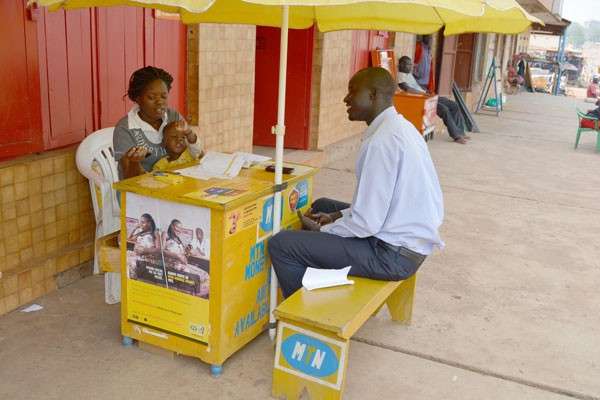Ghana’s mobile money sector is riding a wave of rapid expansion, with record-breaking transaction volumes and surging account registrations.
Yet beneath the surface of this fintech success story lies a quiet but significant concern—agent activity is deteriorating at an alarming rate.
According to the Bank of Ghana’s (BoG) July 2025 Summary of Economic and Financial Data, although registered mobile money agents hit a high of 923,000 by June 2025, only 423,000 were classified as “active”—meaning they processed at least one transaction within the last 30 days.
This places the share of active agents at just 46%, a dramatic drop from 65% recorded in the same period last year. In effect, more than half of all mobile money agents are no longer operational, signaling a growing imbalance in the ecosystem that could have serious ramifications.
Booming Sector, Shrinking Agent Base
The contrast between the surge in user adoption and the decline in agent participation could not be starker. In the year leading to June 2025, registered mobile money accounts jumped from 69.3 million to 76.4 million. Similarly, the value of transactions soared by 44% year-on-year to GH¢323.2 billion. These metrics reflect increased trust in digital finance and broader access to financial services across the country.
However, the support network underpinning these services—the agents facilitating the crucial cash-in and cash-out transactions—is weakening. The agent base grew numerically, yes, but fewer are active month to month. This decline has persisted for over a year, with agent activity failing to recover to mid-2024 levels. From July to December 2024, active agent numbers consistently dropped, bottoming out at 404,000 in October and December, and only slightly rebounding since.
This dichotomy raises important questions about how Ghana’s mobile money ecosystem is evolving. Are digital platforms becoming more self-sufficient and centralised? Are fewer, high-volume agents now dominating the landscape? Or is this simply a case of agent fatigue and market saturation?
Experts suggest multiple factors may be at play. Firstly, as more users become tech-savvy, particularly with the growing use of mobile apps and USSD services, many are handling their transactions independently—reducing the need for agent-assisted services. Secondly, some regions may have become oversaturated with agents, leading to low turnover for many and eventual inactivity. Lastly, economic pressures and rising operational costs could also be driving some agents out of business.
In effect, while the growth in usage is cause for celebration, the concurrent decline in active agents may point to a consolidation of power among fewer, better-resourced operators.
Implications for Financial Inclusion
The drop in active agents could pose a threat to financial inclusion, especially in rural and underserved areas where agents serve as vital access points to digital finance. Without a strong agent network, users in these communities may face higher costs, longer travel times, or even lose access altogether to mobile money services.
Additionally, this development could expose systemic weaknesses. A centralised or highly concentrated agent network may make the entire system more vulnerable to disruptions, fraud, or outages. It also means less competition and innovation among agents, which could lead to service complacency.
The Bank of Ghana, telecom companies, and fintech operators may need to work together to address this growing divide between user demand and agent availability. Possible interventions include offering financial incentives to struggling agents, revising onboarding strategies to ensure quality over quantity, and investing in continuous training programs to keep agents relevant and competitive.
Moreover, improved analytics could help track agent performance and detect early warning signs of drop-off. Identifying areas with high user growth but low agent activity could allow for targeted support and redistribution.
As digital finance moves into its next phase, bridging the gap between rising customer demand and declining agent participation will be key to building a robust, resilient system that works for everyone.
READ ALSO: 24-Hour Economy Gains Momentum: Deloitte Tips Ghana to Hit 2025 GDP Milestone



















